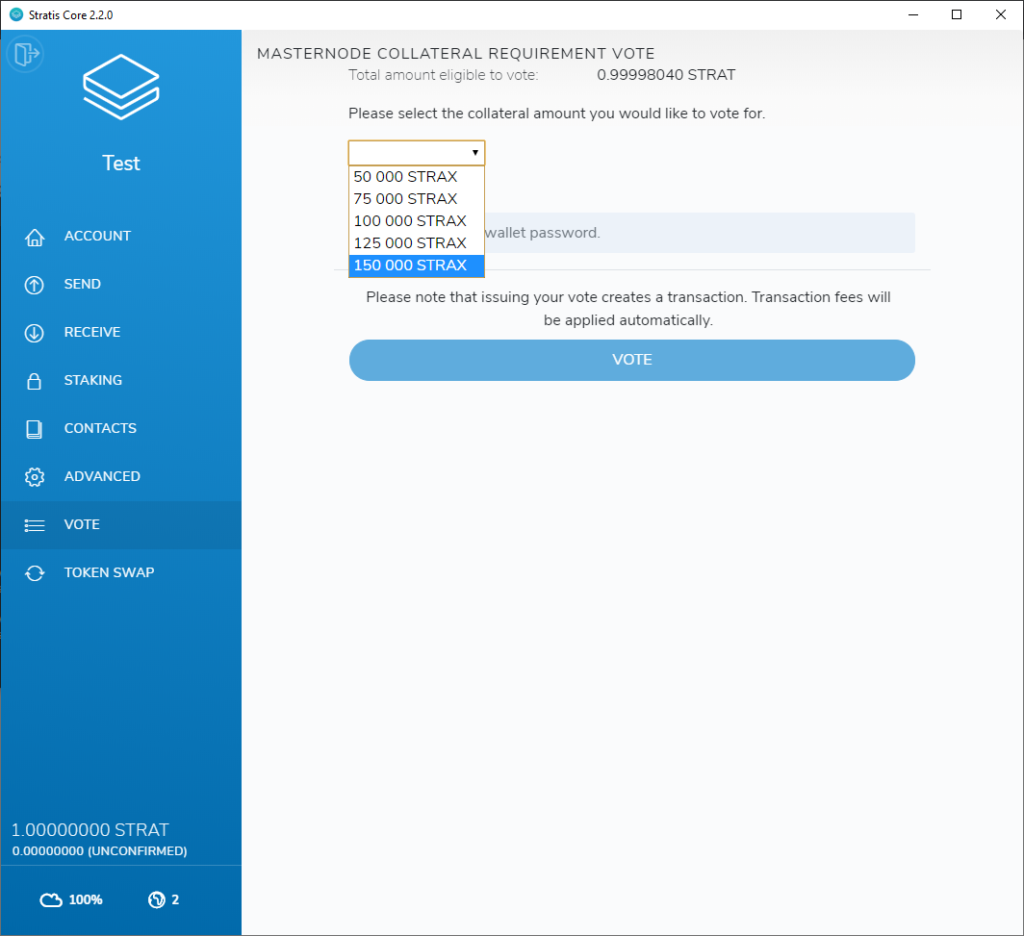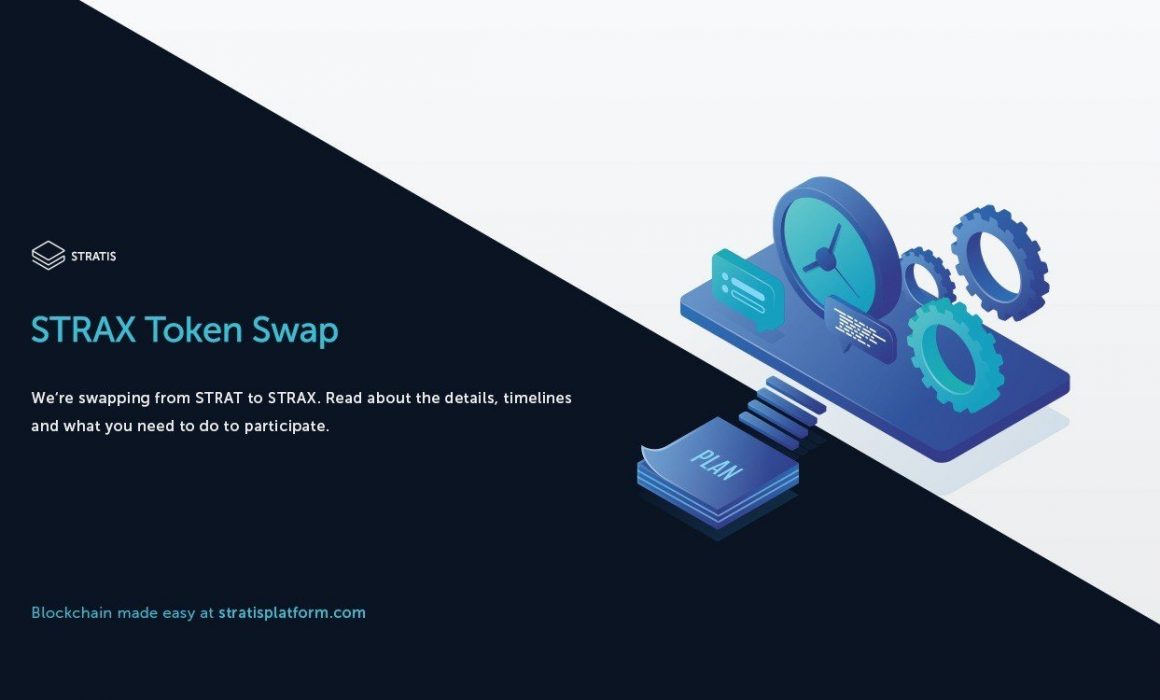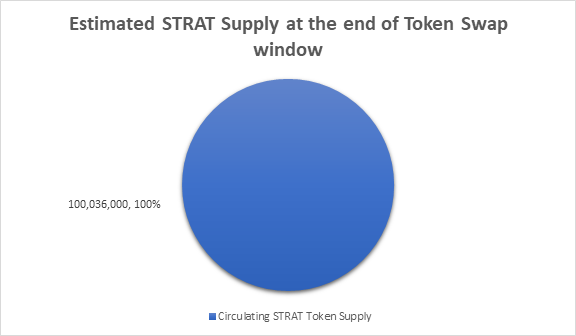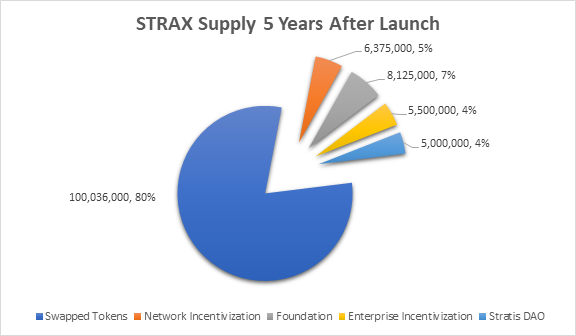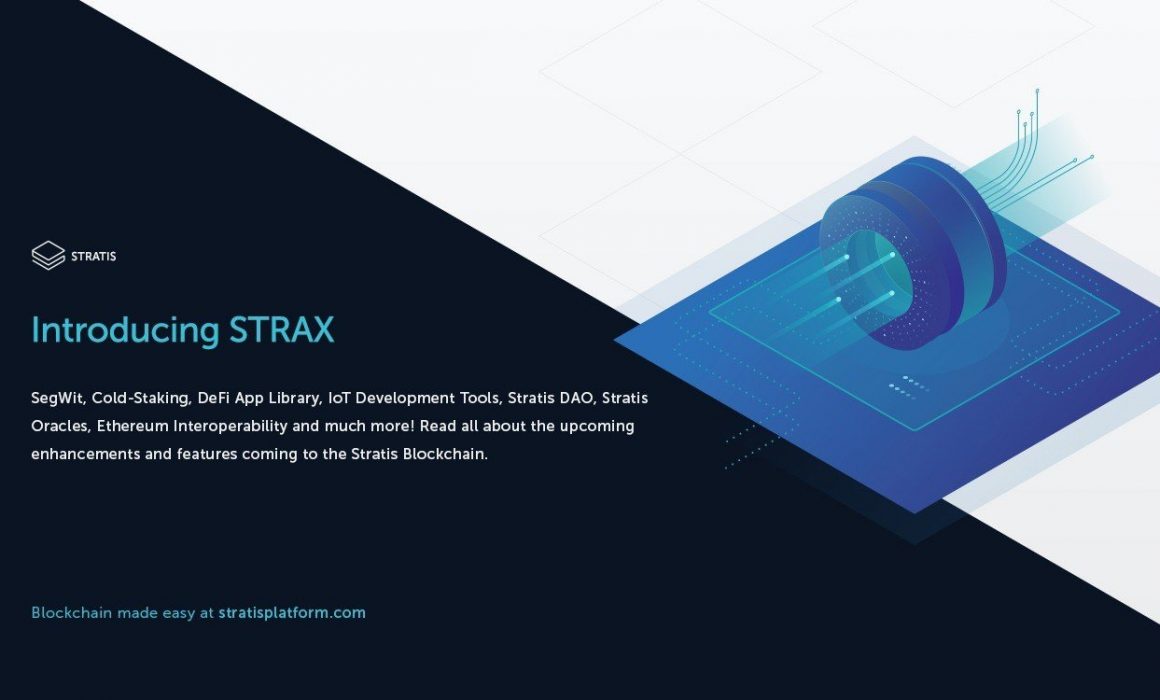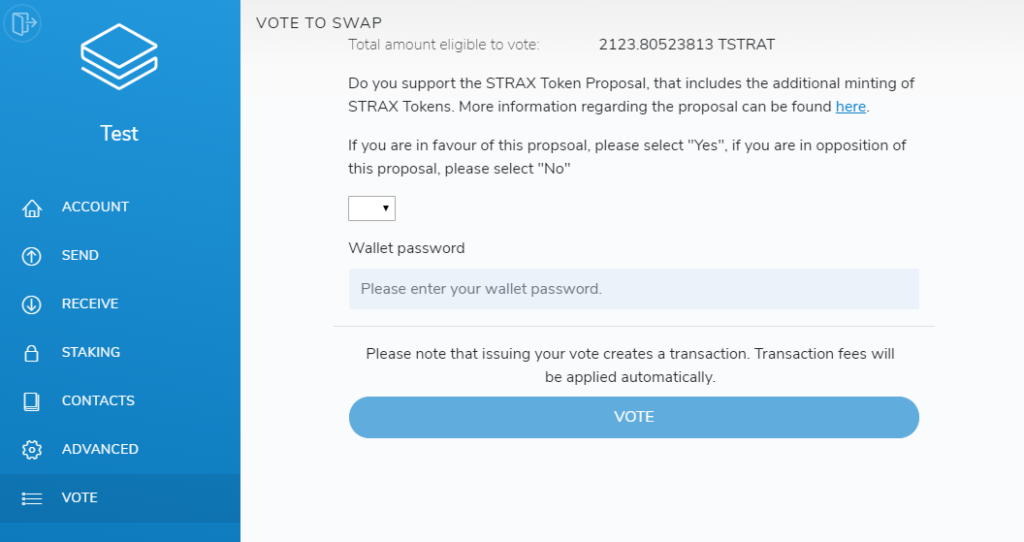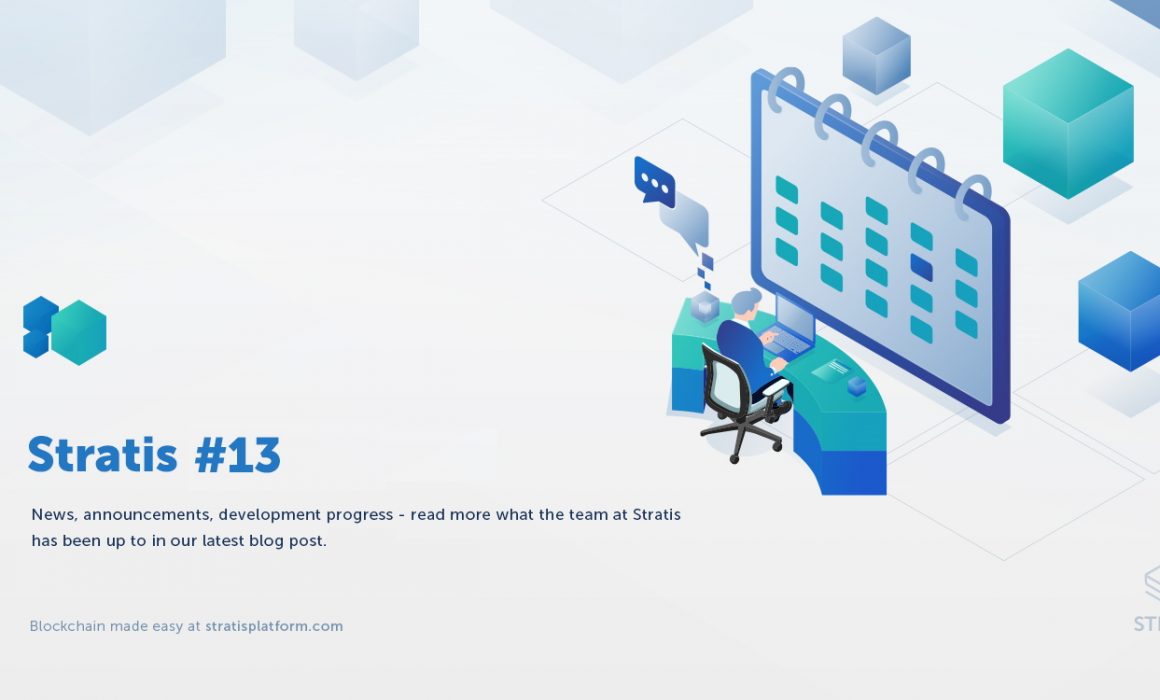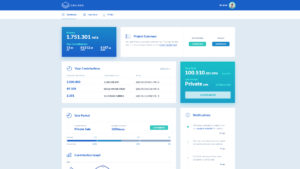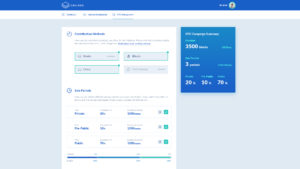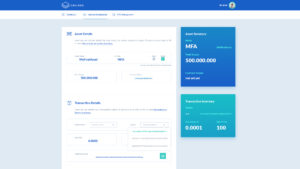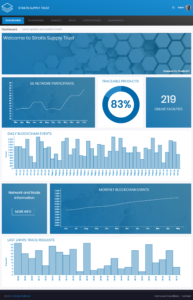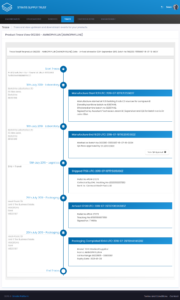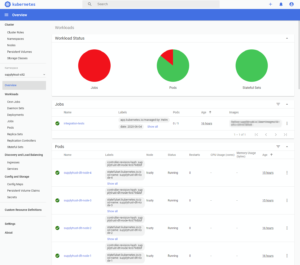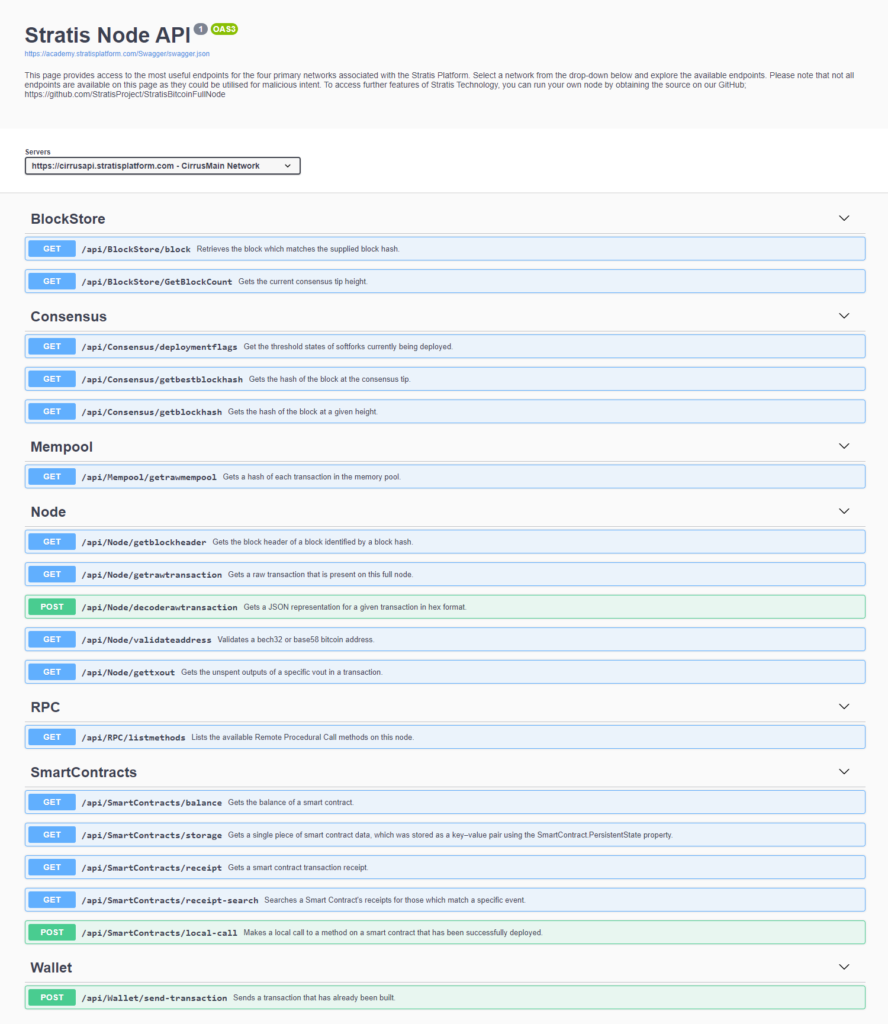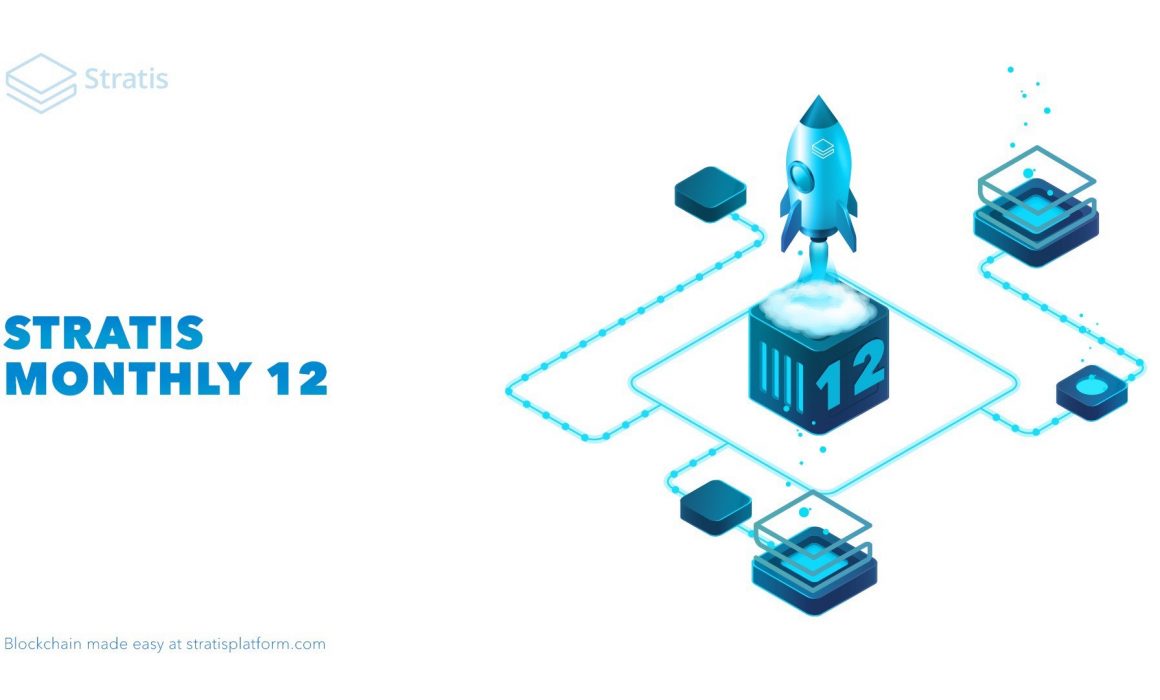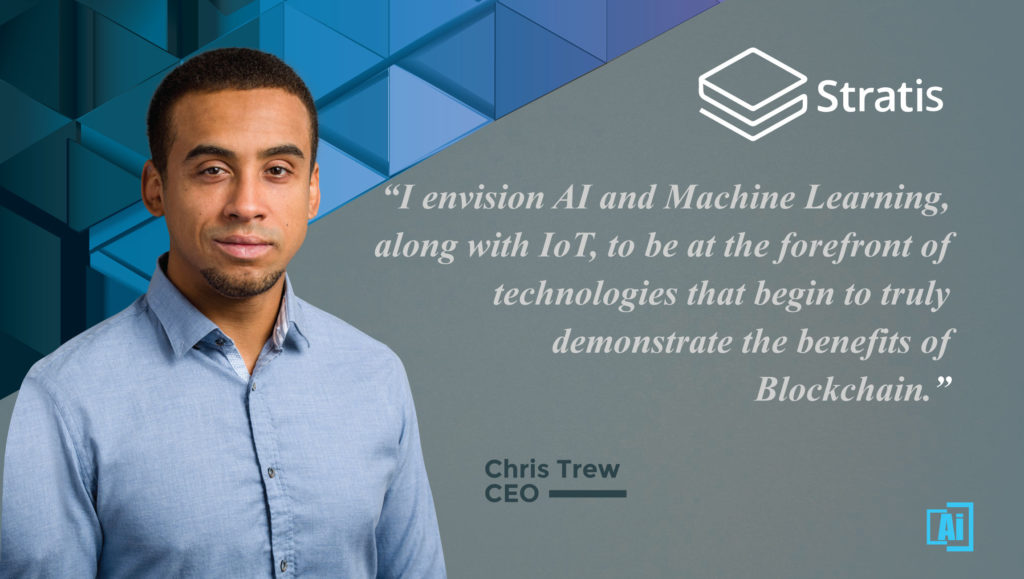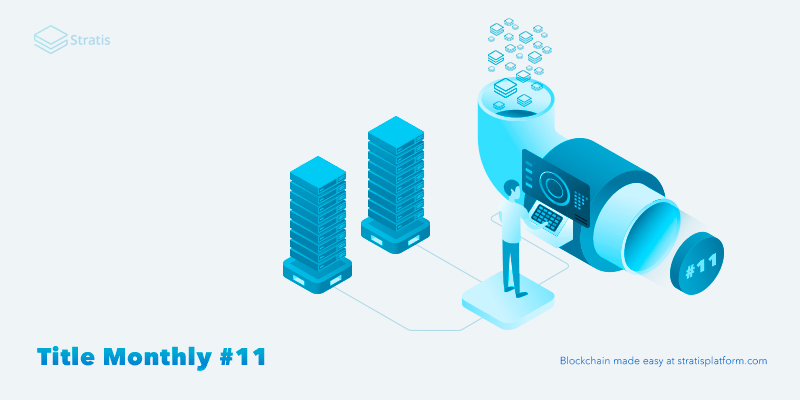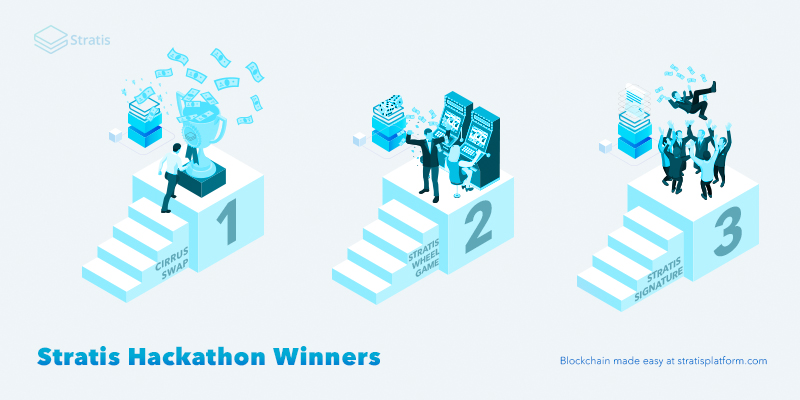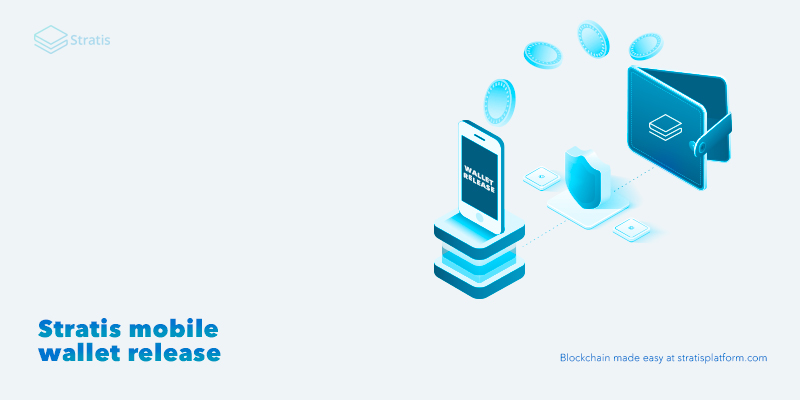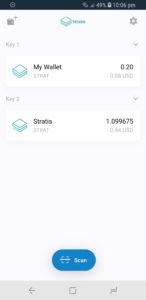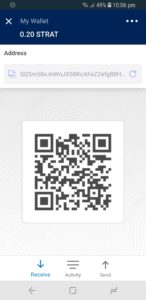Since the inception of the Stratis Token and the Stratis Blockchain, there have been several innovative developments that have come out of Stratis’ Research and Development team(s). When the Stratis Token was initially issued, it was upon a blockchain that was maintained and secured by a modified instance of Bitcoin.
A multitude of factors has driven the Stratis Platform development over the past four years; we are very fortunate to have a strong community of blockchain specialists and enthusiasts. An innovative internal team complements this community with Stratis’ business development, engaging with over 50 company executives to understand the challenges and pitfalls with successfully integrating blockchain technology through digital transformation.
Stratis stayed true to their promise of developing a Blockchain Development Platform on the .NET Core Framework in C#, known as the Stratis Platform. This development introduced several innovative products and features that can only be supported if the newly developed Stratis Full Node maintains the network. Furthermore, thanks to general enhancements made possible by Stratis’ design decisions through the development of the Stratis Full Node, properties of the blockchain can be improved to create higher levels of efficiency.
In addition to technological advances achieved through design and development practices, there are also crucial changes to the ecosystem and tokenomics of the blockchain. Efforts have been made to introduce such features; however, those actions are reliant upon the Stratis Blockchain being maintained by the Stratis Full Node, and not the legacy staking wallet. Something that has not been possible due to the trust-less and decentralized nature of the Stratis Blockchain, properties that we, of course, wish to retain.
Because of challenges presented with the Stratis blockchain, we have opted to perform a Token Swap to a newly provisioned blockchain, incorporating innovative features and crucial changes to the tokenomics of the Stratis Platform. By completing a Token Swap and creating a new blockchain, multiple improvements and feature additions can be achieved without fear of maintaining a heterogeneous network and introducing multiple forks and votes. Furthermore, the minting of additional tokens will enable the continued development of the Stratis Platform and assist further growth of the platform through third-party engagements and relationships.
This document describes the purpose of the STRAX Token, the features inherent on the STRAX Blockchain and details the STRAX Token supply and distribution.
STRAX Initiative
The creation of the STRAX Blockchain provides a vanilla environment for the STRAX Foundation to begin rapid growth, utilizing the blockchain technology platform that has been developed over the past three years. We realize that the landscape within blockchain technology is rapidly changing, creating a need for re-alignment of priorities and apparent business adoption. The existing development of a blockchain development platform, built from the ground-up on the .NET Core Framework enables flexibility and allows us to develop in an agile manner without barriers, blocking development.
The launch of the STRAX Blockchain will see a simultaneous release of an updated roadmap, highlighting the initial goals and objectives that will be set forth for the team. We believe that our platform provides a fantastic platform for the development and deployment of DeFi based Smart Contracts. This is thanks to our utilization of an enterprise development language and framework, one that undergoes significant review and is heavily scrutinized by a seasoned audience. Furthermore, our ability to scale through the use of sidechains in a decentralized manner removes challenges that are currently experienced by heavily utilized and congested platforms. A focus on the digital transformation of traditional finance will pave the way to introducing new services on the Stratis Platform. By providing a trusted environment alongside incentivization schemes for third-parties to deploy alternative financial solutions.
In addition to a focus on DeFi, a significant number of tokens have been reserved to incentivize network growth. These tokens will be employed to encourage the migration of mature and established projects deployed on alternate platforms. These projects will be hand-picked and targeted by the Stratis Foundation, assisted by Stratis Consultancy to ensure the seamless transition to the Stratis Platform, as proven with prior engagements. The introduction of such projects on the Cirrus Sidechain will fuel the network, creating opportunities for masternode operators through the utilization of on-chain solutions developed by Stratis, such as; Stratis IdentityTrust.
The Stratis Platform has seen us deliver many functional products, ranging from wallets that incorporated innovative and truly trustless privatization features, to packaged solutions for businesses. This year has seen a significant focus on researching and developing private blockchain solutions, to cater for those dealing with sensitive data; an unequivocal need. The development and integration of features such as confidential data handling and channel management are crucial when providing a platform for real-world businesses. As we move forward, advancing development tools and surrounding libraries will become a significant focus, enhancing the developer experience when deploying on the Stratis Platform. Through existing research and development, a wealth of internal knowledge and more importantly, blockchain expertise, Stratis is geared to flourish in the Blockchain 4.0 landscape.
Blockchain Enhancements
Several optimizations have been incorporated into the Stratis ‘STRAX’ Blockchain; these enhancements provide many benefits for users of the platform. These optimizations range from introducing a revised tokenomic model to technical enhancements that provide increased on-chain security with the potential to increase levels of decentralization further. Community-focused features such as dynamic masternode membership will undoubtedly captivate interest from existing and those who are new to the Stratis Platform.
A high-level overview of the most notable enhancements can be found below.
Block Reward Increase and Cirrus Sidechain Incentivization
The block reward has been altered, so each mainnet block produced provides a reward of 18 STRAX, thus adjusting the annual inflation rate from 0.5% to just over 10%.
Of the 18 STRAX block reward, 9 STRAX is retained by the block producer. The additional 9 STRAX are sent to the CIRRUS Sidechain and distributed to all block producing Masternodes.
This alteration to the block reward, coupled with the sidechain incentivization provides a necessary revamp to the Stratis tokenomic design. These changes increase Staking Rewards for those staking the STRAX Token to over 150%, as an example, those currently receiving 1 STRAT Staking reward per day, will now receive, on average, 13 STRAX, per-day; based upon current staking weights on the Stratis Blockchain.
Block Time Reduction
Block Time has been successfully reduced to 45 Seconds, thus providing a higher Transactions Per Second and a decrease in time for transaction validation. To put this into context, this reduction in Block Time equates to the creation of an additional 208,050 Blocks in a calendar year.
Cold-Staking Activation
The activation of Cold-Staking provides holders of the STRAX Token the ability to obtain through ‘Staking’ STRAX Tokens that are held within an offline wallet, such as a Ledger Nano.
This provides additional security and has the potential to increase levels of decentralization through more security conscious holders participating in securing the network through staking.
Cross-Chain-Transfer Time Reduction
Through feedback received from the development community and through our efforts to increase adoption rates of our Stratis Smart Contracts solution, the STRAX Blockchain will offer a reduced time-window for performing cross-chain transfers.
Historically, such transfers would be subject to an eight-hour delay to ensure transaction validity. This window has now been reduced to under for mainnet transfers of STRAX to CRS. Improving on this Cross chain faster payments of 50 STRAX or less are processed in just over 15 minutes (25 Confirmations).
Improvement to Blockchain data stores
As part of the Stratis Full Node development for STRAX, we have rearchitected our existing datastores with Google’s LevelDB data storage solution. Such a change has seen drastic improvements to synchronization times whilst also bringing a reduction in memory consumption and disk space usage across all nodes.
Increase of OPRETURN Capacity
The size of a standard OP_RETURN (nulldata) output has been increased to 83 bytes, to match the size used on the Bitcoin network. This expands the potential utility for such transactions on the STRAX Blockchain, as it will be simpler for nodes to get their transactions propagated when the additional space is required. For example, where it would previously only be possible to store a single transaction ID or block hash, it is now possible to store two. This is useful for attestation protocols or for tagging specific transactions with additional metadata or signatures.
Masternode Dynamic Membership
The introduction of Masternode Dynamic Membership provides the ability for new block producers to join the federation with ease, further increasing the levels of decentralization and security of the Cirrus Sidechain. The new functionality enables anyone meeting the defined collateral requirement to create a vote requesting their unique mining key be added to the federation. Existing federation members will autonomously vote in favour of such a request if the mining key is valid and collateral requirements are met.
To ensure consistent block production and block timings on the Cirrus Sidechain, online federation members must remain online. As it stands, those who do not remain online and subsequently miss their block production slots are currently not penalized. In parallel to the STRAX Blockchain launch, additional rules will be introduced on the Cirrus Sidechain. These rules will autonomously enforce the removal of federation members who consistently miss their mining slots, this, in turn, results in a fair distribution of block rewards transferred from the STRAX Block production and ensures a consistent block time.
Dynamic membership also provides the ability for new block producers to join the federation, further increasing the levels of decentralization and security of the Cirrus Sidechain.
Masternode Collateral Increase
In addition to the implementation of Dynamic Membership, after careful consideration, we have also opted to increase the collateral requirements for new Masternodes joining the federation. Currently, only 10K STRAT is required to operate a block producing Masternode on the Cirrus Sidechain.
This change is necessary to increase the levels of distributed staking weight on the blockchain. With the newly introduced tokenomics, offering a share of 9 CRS Tokens for every mainchain block produced, the incentive is clear. Existing Masternode operators will retain their current collateral requirements; however, if you are removed from the federation due to missing mining slots, your historic collateral requirement cannot be honoured.
Removal of Legacy Node Support
The STRAX Blockchain will initially only support interconnectivity between other instances of the Stratis Full Node. We will be removing support of any other staking nodes, such as the legacy Stratis Token Node and Stratis QT Nodes. The removal of legacy node support removes the complexities associated with a heterogeneous environment, providing confidence in expected behavior with newly enabled features.
Segregated Witness Activation
Segregated Witness (SegWit) will be activated on the STRAX network by default. SegWit capability has been actively used on the Bitcoin network (among others) for an extended period and has proven itself to be a robust protocol improvement. Usage of SegWit provides several benefits to the STRAX network.
- A significant increase in the number of transactions that fit in each block, thus increasing transaction throughput of the STRAX Blockchain.
- Increased transaction security, as transaction IDs are no longer malleable.
- A built-in upgrade path for future updates to the script language used in STRAX transactions.
- The ability to introduce new types of transaction signatures and scripts. i.e. Schnorr signatures and taproot.
STRAX Roadmap Items
Stratis DAO
To further aid in the growth of the Stratis Platform, the deployment of a decentralized autonomous organization contract will take place on the Cirrus Sidechain, with the sole purpose of funding developers building solutions using Stratis Technologies. The DAO Contract will enable token holders the ability to vote for funding of teams and individuals who are actively developing solutions on the platform. An allocation of 5,000,000 Tokens from the initial distribution will be set aside to fund the Stratis DAO Contract.
Stratis Oracles
The development and deployment of Stratis Oracles on the Cirrus Sidechain will enable the development and deployment of new decentralized applications that were previously not possible. The introduction of decentralized, secure and reliable Oracle Service will provide a collection of ever-growing external data points that can be used to build applications for any use-case.
DeFi Software Library
A team will be constructed with a sole focus on developing decentralized finance solutions, deployable on Stratis Technologies such as the Cirrus Sidechain. A focus on existing popular solutions that have been made available on alternate Blockchain platforms will enable us to efficiently deliver an initial library of DeFi Applications, ready for immediate deployment for truly decentralized finance solutions.
Proof-Of-Stake V4
We already have several optimizations and new features that we plan to integrate into the Proof-of-Stake to both improve security and increase the level of possible scale. A lot of our innovation can be accredited to our developments within both private and non-private blockchain solutions. Features developed within either environment are transferrable, within reason, thanks to our feature-based solution. Expect features such as; Private Data, Channels (sharding) to be introduced as well as improvements to transaction finality and nothing-at-stake complexities.
Ethereum Interoperability
Following up on the successful development of a ‘Blockchain Bridge’ that enabled interoperability between Stratis’ DLT Solution and Hyperledger Fabric; a focus on achieving Ethereum interoperability with the Cirrus Sidechain will become a goal. This development will enable the seamless transition of existing Ethereum solutions and will enable existing Stratis solutions to leverage Ethereum dApps if and where necessary.
Unity Gaming Software Development Kit
The Unity SDK and other technologies within the .NET Family are a significant focus for Stratis in 2020. Integration within the Unity development focus will continue to be a focal point for further development.
IoT Software Development Kit
The Stratis IoT SDK will contain libraries that simplify building applications interacting with Stratis Technologies to manage devices and security—providing an ability to interconnect IoT devices to Stratis Blockchain Technology through an ultra-lightweight client.
Python Software Development Kit
According to recent polls, Python has become one of the most popular programming languages as of recent times. To attract audiences from different development backgrounds, an SDK will be provided to facilitate developers building solutions on top of Stratis Technologies.
Stratis System Contracts
Thanks to the successful implantation and activation of SegWit on the STRAX Blockchain, we are now able to incorporate what we refer to as ‘System Contracts’ on the STRAX Blockchain. This enables us to incorporate logic that is validated autonomously by the network, much like Smart Contracts, but only a strict set of System Contracts will be deployed; subject to a majority signal.
Stratis Mobile Wallet for iOS and Android (Token Support and DEX Support)
The Stratis Mobile Wallet will be extended to offer Cirrus Sidechain support, enabling users to keep track of SRC20 Tokens and SRC721 Assets on their mobile device. In addition, we will be supporting the Stratis Swap project by including support to enable decentralized exchanges of tokens from within our mobile application.
Token Purpose
STRAX is the cryptographic token that will fuel the Stratis Blockchain and can be used to purchase and/or operate certain services via the Stratis Platform. Subscribers (and current holders of STRAX) are able therefore to use STRAX:
- to receive a token on a sidechain that can be used to execute smart contracts;
- as collateral to operate masternodes via the Stratis Platform which can result in Subscribers receiving fees;
- to purchase customizable private sidechains (developed by Stratis) that are connected to the Stratis Blockchain (these can be used by the Subscriber to run their own initial coin offering or security token offering),
- subscribe to ICOs and security token offerings that are run by certain third parties using the Stratis Platform; and
- pay for various goods and services using a small number of third-party payment processors.
Token Swap Detail
In addition to the technological, functional and tokenomic advancements that are made possible by the transition to a new blockchain. We are also proposing the additional minting of 25,000,000 STRAX Tokens.
Proposed STRAX Supply
The STRAX Token Supply will mirror that of the STRAT Token Supply with an additional creation of 25,000,000 STRAX that will be reserved by the foundation. The additionally minted STRAX Tokens will be employed by the foundation to further grow and boost the Stratis Platform, with a goal of widespread adoption and utilization of Stratis Blockchain Technologies.

Figure 1: STRAX Token Supply

Allocation Definitions
The allocation of STRAX Tokens has been split into three different collections; this provides a clear view of how the tokens will be employed to benefit the Stratis Platform.
Network Incentivization
The Network Incentivization allocation will be utilized to encourage the growth of the public blockchain offerings, primarily through providing bounties and funding hackathon prize pools. As an example, this allocation would fund a global hackathon aimed at developing blockchain solutions within a specific vertical.
Foundation
The Foundation allocation relates to tokens that will be utilized to fund the continued development of the Stratis Platform and contribute towards future business development to accelerate the growth of the platform. As an example, this allocation could be used to fund continued development of the platform and contribute towards day-to-day operations.
Enterprise Incentivization
The Enterprise Incentivization allocation is reserved incentivize enterprises and beneficial third-parties to utilize applications deployed on the Stratis Platform. As an example, this allocation could be used to target successful businesses already utilizing blockchain technology and incentivize them to migrate their solutions to the Stratis Platform.
Proposal Vote
To both clarify and ensure that the community of STRAT Token holders are in favour of our approach to mint additional tokens; we have opted to perform an on-chain vote. This vote will determine whether the detailed approach will be supported and ultimately executed to allow the further growth of the token and associated Stratis Platform and technologies.
We envisage that the vast majority will indeed be in favour of the proposed changes to token supply inherent with the creation of the STRAX Blockchain. However, we understand and are sensitive to the fact that the current Stratis Blockchain is a truly decentralized network, secured and maintained by a large number of staking nodes, both validating and producing blocks. We understand and appreciate that it would be unfair to dictate such changes to the tokenomics and overall token supply without the support of those who have made the current developments possible, the token holders.
With the above in mind; we will hold a 14-Day voting period where token holders can vote in favour or against the proposed changes to the increase in token supply. Each vote will be weighted with a value equal to the balance of the respective voting wallet, to ensure a fair vote and discourage malicious voting.
Such voting functionality has been incorporated into the Stratis Core Wallet, enabling a user to download and install the latest version and cast their vote, whether that be in favour or against the proposed changes.
Participation Windows
The STRAX Token Swap Voting window will be from NOW until the block closest to 17:00 GMT 9th October 2020.
To cast your vote and have an impact on the proposed actions, you must vote within this timeframe, votes made past this date will be not counted in the final vote outcome.
Voting Process
Ensuring the voting process cannot be manipulated to be in favour of a particular outcome is crucial. Therefore, we have opted for an on-chain weight-based vote similar to Proof-Of-Stake consensus.
The voting function records the balance of the voting wallet and their desired voting decisions, whether that be in favour or opposition to the proposed changes. A transaction is created for every address that holds a balance greater than 1 STRAT Token within the wallet. If your wallet has been particularly active, this can equate to several transactions, only a small transaction fee is associated with each vote.
At the close of the voting period, all on-chain addresses will be scanned within the defined voting window, balances of addresses voting in favour will be totalled and compared to those voting in opposition.
For clarity, please refer to the below example.
- Token Holder A votes ‘In Favour’ with a STRAT Balance of 1000
- Token Holder B votes ‘In Opposition’ with a STRAT Balance of 500
- Token Holder C does not cast a vote with a STRAT Balance of 2000
The above scenario would result in an ‘In Favour’ decision.
It’s important to note that funds moved from the wallet will not count towards the voting decision. Furthermore, suppose you do make regular transactions within your wallet, as a result of the in-built privacy features contained within our wallet software. In that case, your addresses may change, resulting in your vote not counting towards the final voting decision.
Voting is made simple by the introduction of new Voting functionality within the latest wallet.

After performing the vote, it is recommended that no further transactions are made from the wallet. You can continue to stake without impacting the vote.
Stratis Core 2.2.1 is now available and can be used to cast your vote in, binaries for all major operating systems can be found below.
Windows x64
Windows x86
OS X
Linux (DEB)
Linux (TAR)
Please direct any questions to our Discord server where a member of the team or our community will be happy to assist.



